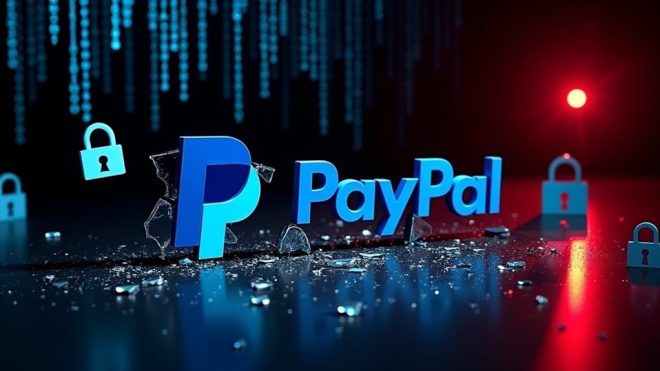16 Million PayPal Accounts Exposed: A Stark Warning for Users
A staggering 16 million PayPal credentials have surfaced online, raising alarms about identity theft and financial fraud. Experts warn that many passwords are reused, amplifying vulnerabilities across platforms. PayPal insists their systems are safe, attributing the leak to malware-driven theft. But are they really secure? Users must act fast—reset passwords, activate multi-factor authentication, and ditch those reused credentials. The stakes are high; the clock is ticking, and the risks are real. Want to know how to safeguard your accounts?
As if the digital age didn’t have enough threats, a staggering 15.8 to 16 million PayPal login credentials have reportedly surfaced on underground forums, stirring alarm across the online community. This alarming breach of personal security is more than just a number; it’s a wake-up call for millions of users who might be unknowingly sitting ducks for cybercriminals.
The dataset, which includes login emails, plaintext passwords, and linked URLs to PayPal accounts, poses a considerable risk. Hackers have made this information available on notorious underground forums, selling it for as low as $2—a price that’s practically a steal for would-be identity thieves. With the inclusion of associated URLs, the potential for automated credential-stuffing attacks is heightened. It’s as if hackers have rolled out a red carpet leading straight to users’ most sensitive information.
Some of the passwords in this dataset appear robust and unique, but a troubling number are reportedly reused across multiple accounts. This presents an alarming scenario where a single breach could unleash chaos across various platforms. Notably, the dataset allegedly includes emails, passwords, and associated URLs, all structured to facilitate automated credential-stuffing attacks. Additionally, experts warn that the data may have been compiled using infostealer malware, which compromises devices to harvest sensitive information.
In response, PayPal has firmly denied any recent breach, attributing the leak to an incident from 2022 coupled with malware-driven theft. They emphasised that their systems remain secure and that the leaked data originates from previous credential-stuffing attacks. Nonetheless, experts are sceptical. If this were actually a fresh breach, wouldn’t there be signs of widespread misuse by now? The hackers’ low pricing and scant evidence to back their claims add to the uncertainty.
PayPal isn’t new to the security game. The 2022 incident, which compromised around 35,000 accounts, led to a hefty $2 million fine for inadequate cybersecurity. Fast forward to now, and the scale of the alleged leak is considerably larger, raising eyebrows about whether PayPal has truly bolstered its defences since then.
Past incidents have heightened awareness among users about the importance of multi-factor authentication and password hygiene, but this latest revelation pushes the urgency to new heights.
So, what does this mean for users? The exposure of emails and plaintext passwords puts countless accounts at risk. Credential stuffing becomes easier, and the repercussions could stretch beyond just PayPal—identity theft and financial fraud are real threats. Even with multi-factor authentication in place, knowing the primary credentials effectively erodes that first layer of defence.
Time to act! Users are strongly advised to reset their PayPal passwords immediately, regardless of the breach’s authenticity. Activate multi-factor authentication to bolster security, and choose unique, strong passwords to avoid the peril of credential reuse. Keeping antivirus software updated can help fend off malware and infostealers, while utilising browser security features and considering VPNs or firewalls can provide that extra layer of protection.
As the dark web marketplace buzzes with the sale of stolen PayPal credentials, it’s clear that the cyber battlefield is ever-evolving. The stakes are high, and the question remains: Are users prepared to defend their digital lives?
Final Thoughts
In light of the recent breach where 16 million PayPal accounts were compromised and made available online, it’s crucial to prioritize your online security. This incident underscores the need for strong security measures such as changing passwords and activating two-factor authentication.
At Computer Repairs Sunshine Coast, we understand the importance of safeguarding your personal information. Our team can assist you in enhancing your online security to protect against such threats. Don’t wait for a breach to happen—take proactive steps today.
If you need help securing your accounts or have any questions about your online safety, click on our contact us page to get in touch! Stay safe!

